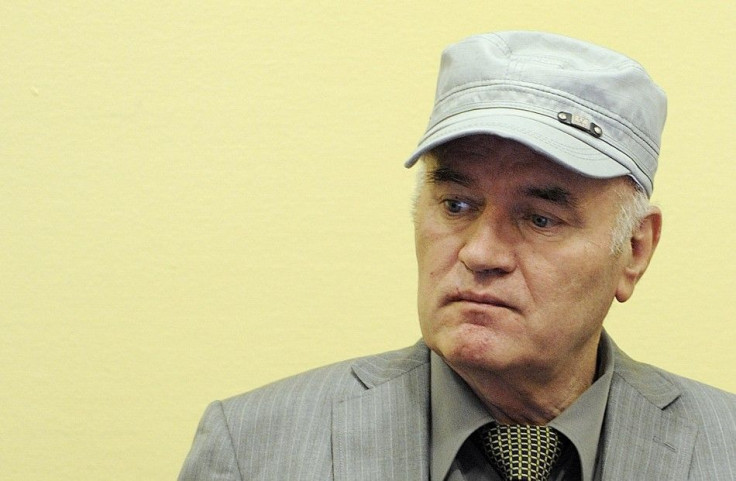Ratko Mladic Trial: Former Bosnian General Aggravates Court
Mladic is Stalling

Ratko Mladic, the former Bosnian Serb general, is doing his best to avoid conviction for his alleged war crimes committed in the Yugoslav and Bosnian Wars of the 1990s.
The ex-army chief, who is currently being tried by the International Criminal Tribunal for the former Yugoslavia, still has a few tricks up his sleeve, and has proved that age has not tempered his manipulative skills.
If convicted, Mladic would likely spend the rest of his life in prison. But, the United Nations has said that the tribunal must be finished by December 2014, and it appears that Mladic is trying to extend his sentencing as long as possible.
Mladic's hearing began on July 3, 2011, and it has already been put on an indefinite hold. The first two days of the trial saw an antagonistic Mladic, who said he would boycott the proceedings until his court-appointed lawyers were replaced by lawyers of his own choosing.
Russian daily RIA Novosti is reporting that Mladic is now threatening to go on a hunger strike and to stop taking his prescription pills unless the tribunal allows former Serbian military judge Milos Saljic to represent him. He also asked for a month to handpick the rest of his defense.
Clearly, Mladic will try to slow down the trial as much as possible by stretching the time frame for choosing a lawyer and by not respecting the court, Yugoslav Lawyers Committee Director Milan Antonic told SETimes.
So far, his plan seems to be working. The Tribunal must discuss Mladic's demands, and would have to amend regulations to allow Salijic in court. Salijic cannot speak English or French, as required. The court has said that it will look at the lawyers' credentials until Aug. 1 nonetheless.
In the July 4 hearings, the 69-year-old Mladic refused to take of his hat, despite protocol and orders from judge Alphons Orie. He also antagonized Orie further, continually interrupting him and shouting demands. At one point, Mladic removed his headphones and stopped listening to the translation of the trial altogether, prompting Orie to throw him out of the court room before his charges were read.
Mladic is blamed for the Srebrenica Massacre during the war in the Balkans, during which more than 8,000 Bosnian Muslim men and boys were killed. Srebrenica was the largest European mass murder since World War Two.
If things continue this way, and if the rumors of Mladic's poor health are true, the former general might permanently end the trial the same way Slobodan Miloševi? did. Miloševi?, the former president of both Yugoslavia and Serbia, died in his cell while his war crimes trial was still underway. The court was expected to reach a verdict a few months after Miloševi? passed. There are rumors that the alleged criminal's heart attack was not natural.
Some, like Belgrade Centre for Human Rights researcher Zarko Markovi, are trying to persuade the U.N. Tribunal to speed up Mladic's trial. They suggest that the court should hear each of Mladic's charges individually, rather than together, thereby assuring that the court reaches a verdict on the more serious charges before the 2014 deadline.
Others suggest that Mladic be tried with Radovan Karadzic on the Srebenica charges. Karadzic is the Bosnian Serb politician who reportedly ordered the massacre. He was arrested in 2008.
Mladic was arrested in May, and faces 11 charges including genocide, crimes against humanity and war crime. Orie plead not-guilty to all accounts on his behalf.
© Copyright IBTimes 2025. All rights reserved.





















